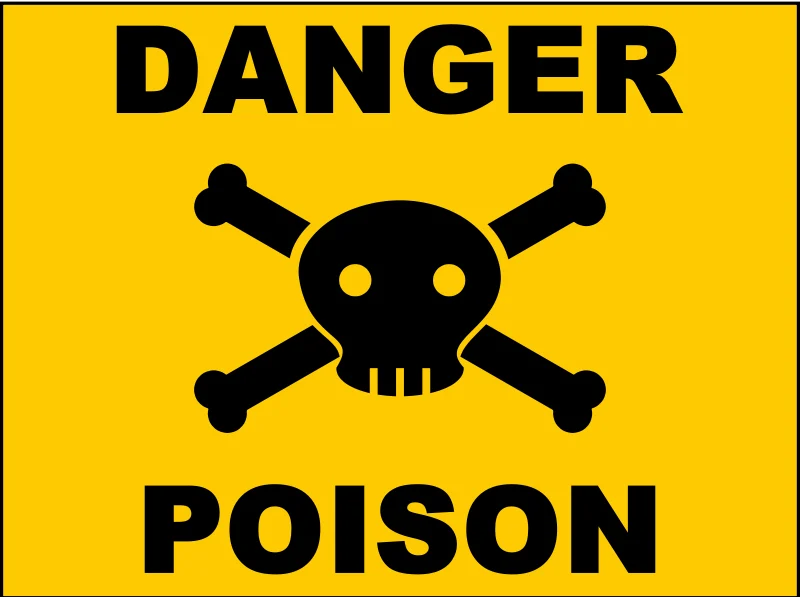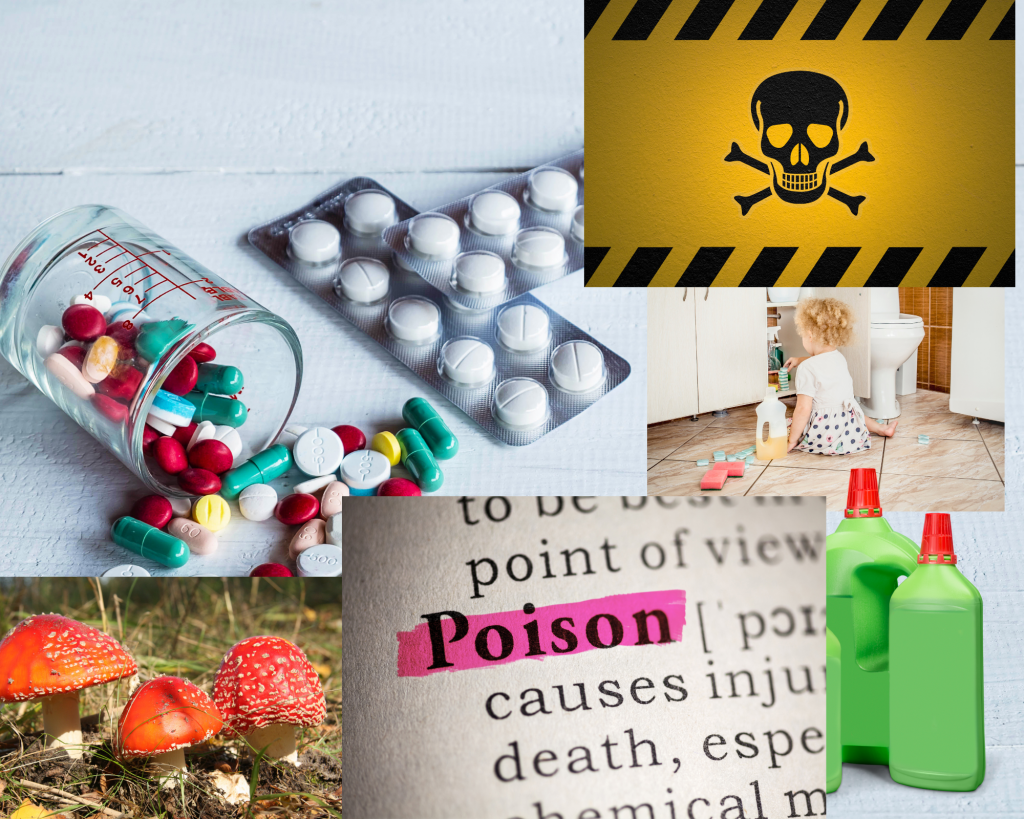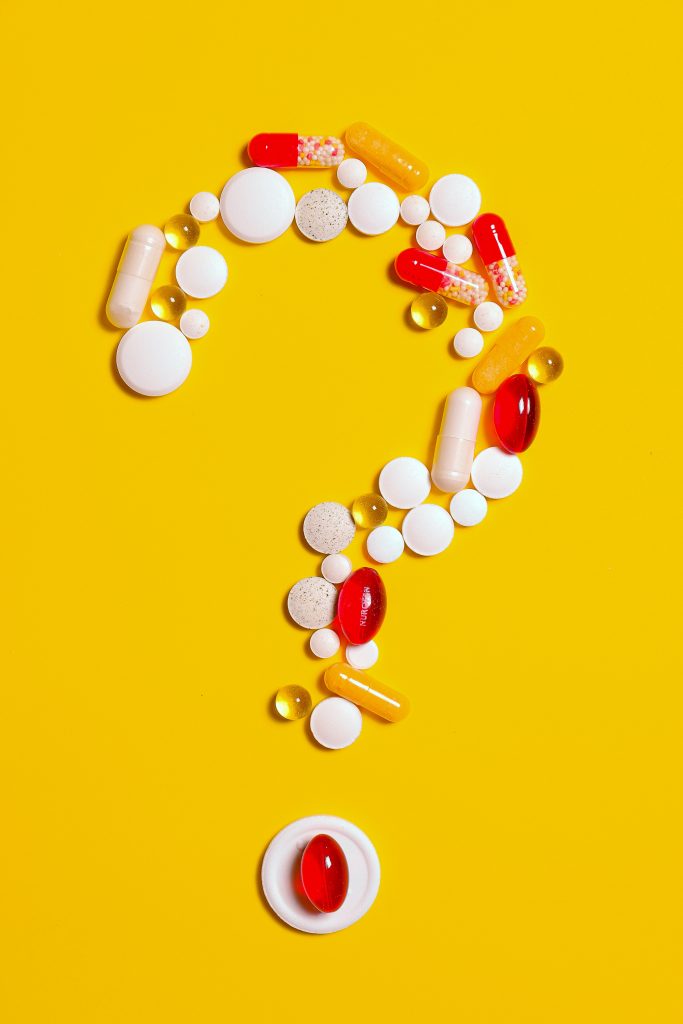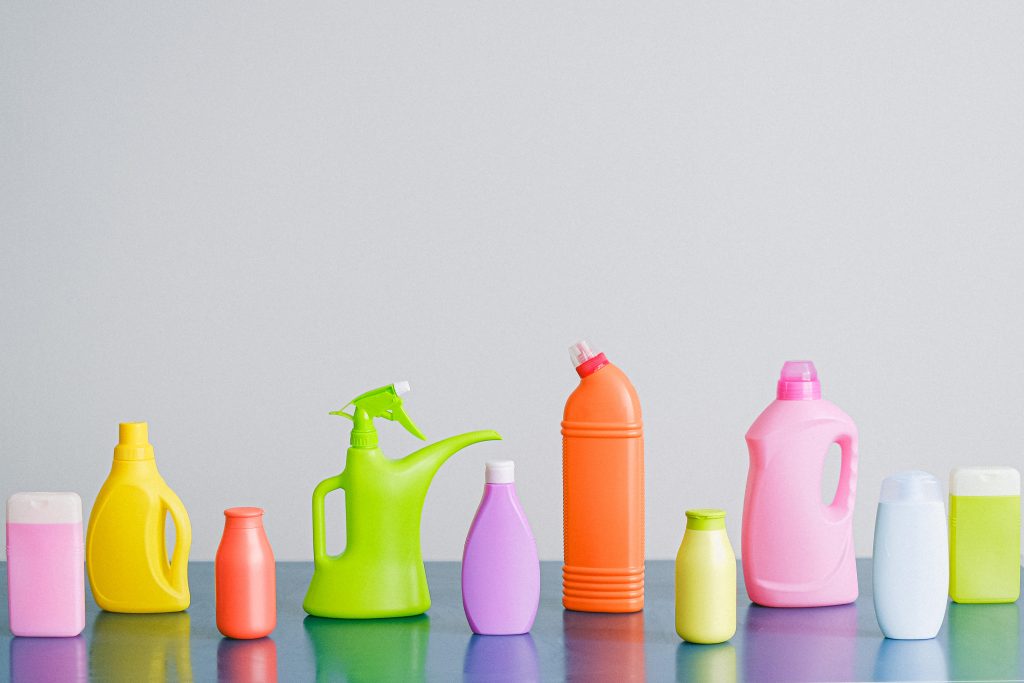
Poisoning occurs when a person is exposed to a substance in a sufficient quantity that can cause illness, injury or death. A poison can be any substance that causes harm in sufficient amounts. This includes, but is not limited to:
- Cleaning products and other chemicals
- Over the counter and prescription medicines
- Venom or toxins from plants or animals
- Herbal medicines and supplements
We can be exposed to poisons by ingesting them, inhaling them or through skin contact.

WHAT SHOULD I DO IF SOMEONE HAS BEEN EXPOSED TO AS POTENTIAL POISON?
***Call triple zero (000) immediately if someone stops breathing, slips into a coma, has a seizure (fit) or a severe allergic reaction (anaphylaxis).
The basic poisoning first aid is as follows:
If a poison has been swallowed:
- DO NOT induce vomiting
- Locate the packaging/box/bottle
- Call The Poisons Information Centre on 13 11 26 for advice
If a poison has been inhaled:
- Ventilate the area or get the person outside into fresh air
- Call The Poisons Information Centre on 13 11 26 for advice
If a poison comes in contact with skin:
- Remove any contaminated clothing
- Flush the area with cool running water for 15 minutes
- Wash the area with soap and water
- Call The Poisons Information Centre on 13 11 26 for advice
If a poison comes in contact with an eye:
- Using a jug, cup or slow running tap water, flush the eye while holding the eyelids open
- Call The Poisons Information Centre on 13 11 26 for advice
You may have noticed one recurring theme in the basic first aid for poisoning…..CALL THE POISONS INFORMATION CENTRE!
SO WHO ARE THE POISONS INFORMATION CENTRE?

The Poisons Information Centre are a 24 hour telephone service that can provide up to date information on the toxicity of substances and the correct first aid or emergency treatment. A simple phone call may save you unnecessary doctor or hospital visits.
You can call The Poisons Information Centre if someone:
- Has been poisoned
- Has overdosed
- Has made a mistake with medicines
- Has been bitten or stung by something venomous (for example a snake, spider, bee or wasp)
You can also call The Poisons Information Centre if you If you have any questions or concerns about:
• prevention of poisoning,
• hazards associated with chemicals, plants, pesticides and other products
WHAT TO EXPECT WHEN YOU CALL THE POISONS INFORMATION CENTRE?
When you call The Poisons Information Centre, you can expect to be asked a series of questions such as:
What happened?
To whom did it happen?
How much does the victim weigh? * (This can be important in working out how toxic a substance is for the victim)
What substance is involved? * (the more information you can give here the better!)
When did it happen?
Does the victim have any symptoms?
What treatment has been given?
What is your phone number? * (it’s important to note, that all calls to TPIC are confidential and they do not keep a track of phone numbers or how many times you have called. However, they require your phone number in case they need to check in on the casualty’s condition and to check in on the caller and provide reassurance in what can be a stressful situation)
PREVENTION IS ALWAYS BETTER THAN A CURE
A large majority of accidental poisonings occur in the home.
The following list outlines some ways to reduce the risk of these poisonings:
- Store all chemicals, cleaning products and medicines out of reach of children. Ideally in a locked cupboard at least 1.5 metres off the ground.
- Return chemicals and medicines to their safe storage place immediately after use.
- Keep chemicals and medicines in their original packaging.
- Keep handbags/bags out of reach of children if these contain medicines or other potential poisons.
- Always refer to medications by their name; don’t call them “lollies.”
- Check that the plants in your garden are not poisonous.
- Always wear appropriate PPE (eg: gloves, masks) when handling/working with chemicals and pesticides.

